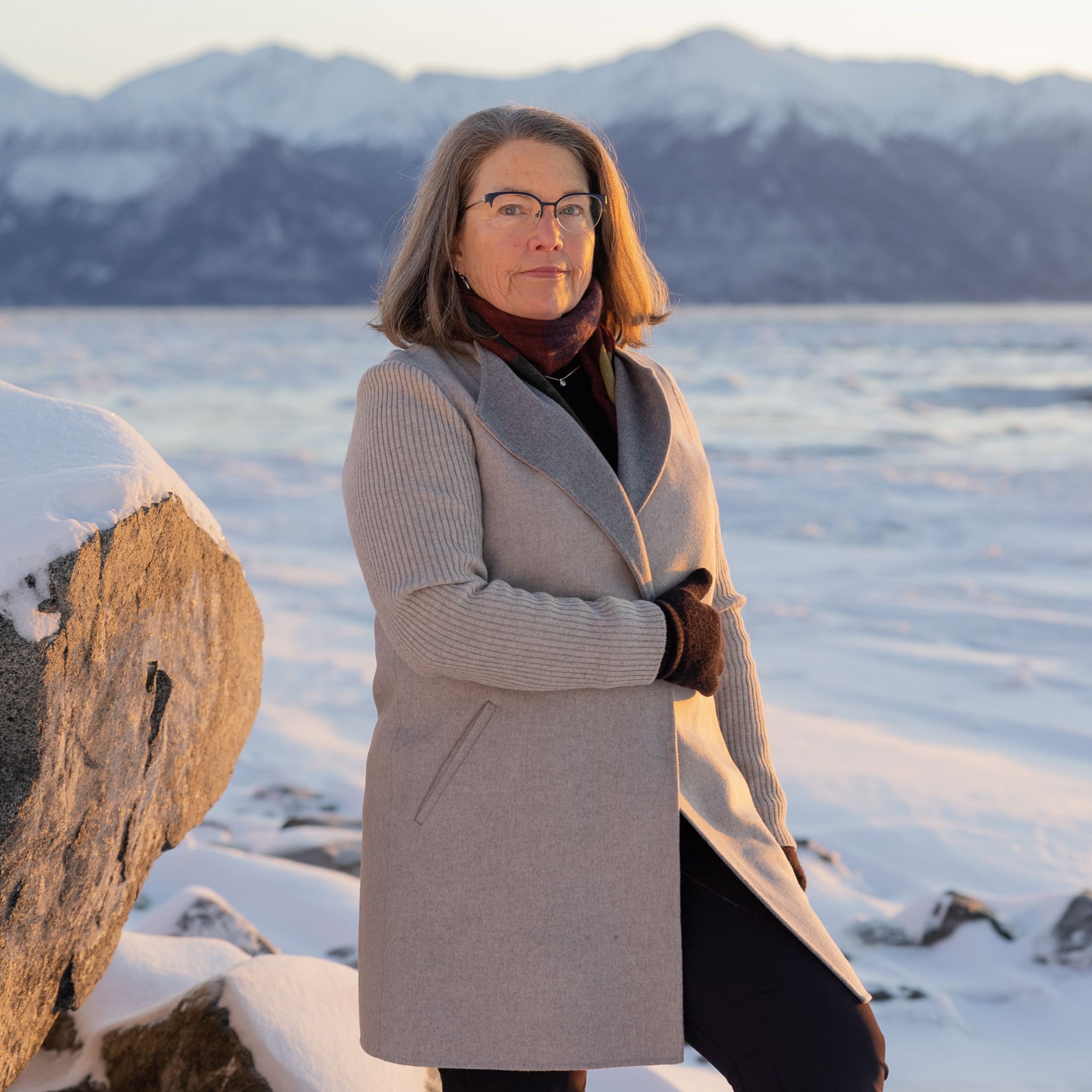
Driving Climate Action
Stephanie Holthaus connects diverse women leaders to generate collaborative solutions to the climate crisis.
Spring 2023
In some parts of the world, climate change can still feel fairly abstract. Alaska is not one of those places. “Here, anyone who cares to look can see climate change,” says Stephanie Holthaus, who has lived in Alaska since 1978. Take Portage Glacier, southeast of Anchorage. “The first 20 years I was here, you could drive to the end of the road and look at the face of the glacier across this little lake that had icebergs in it,” Holthaus remembers. “And now the glacier has receded so far back into the mountains, you can’t see it from the road at all.”
She says firsthand experience has bred into Alaskans a practicality, a tendency to put politics aside and look to solutions, at least where climate is concerned. It’s an attitude that Holthaus brings to her work as climate action advisor for The Nature Conservancy in Alaska, a position she’s held since 2017.
As part of her work, Holthaus launched the Women in Climate initiative in 2018. In the years since, she and her team have hosted five “innovation labs,” which bring together women from across sectors and backgrounds for multiday workshops to generate ideas for addressing climate change. Alumnae of these meetings make up a network of 188 leaders around the world who share advice and resources.
Holthaus says it’s vital that the innovation labs center women—not because women represent the majority of the world’s poor or because their livelihoods are often more dependent on natural resources threatened by climate change, but because women offer powerful skills and perspectives that can shift the dynamic of the climate conversation. Historically, women have been underrepresented in global leadership positions, including at the highest levels of conservation work. She believes that bringing more women to the table and supporting them as leaders can produce more diverse ideas and stronger outcomes.
Quote
Women offer powerful perspectives that can shift the dynamic of the climate conversation.
“When women come together to collaborate on solutions, there’s a completely different energy than in a room with mostly men,” Holthaus says about the innovation labs she has convened. In her observation, women’s leadership styles often include a community outlook. “If they’re thinking about climate change, they’re also thinking about food, safety and health,” she says. “Women tend to bring others along—not just other women, but all people.”
In 2020 and 2021, due to concerns around the COVID-19 pandemic, the innovation labs went virtual and participants focused on the need for equitable climate solutions. At the most recent innovation lab, held in Seattle in September, a group hammered out a plan to better collect and distribute data to help the fishing industry and communities become more resilient to the impacts of climate change.
The Conservancy hosts the events, but the participants decide what to focus on. Holthaus has been fascinated watching women come together to brainstorm ideas, then return home to implement them. Her team is planning future sessions likely to be centered on transportation and agriculture, two industries that have been major drivers of climate change—and that could be major drivers of solutions.
In Alaska, the changes wrought by a warming climate—increasing temperatures, thawing permafrost and those vanishing glaciers—are difficult to ignore. But for Holthaus, it’s impossible not to be hopeful.
“I am optimistic,” she says. And that’s why Holthaus is working to create a world in which all women play a critical role in solving the climate crisis. “Women are not going to let this world go down in flames.”